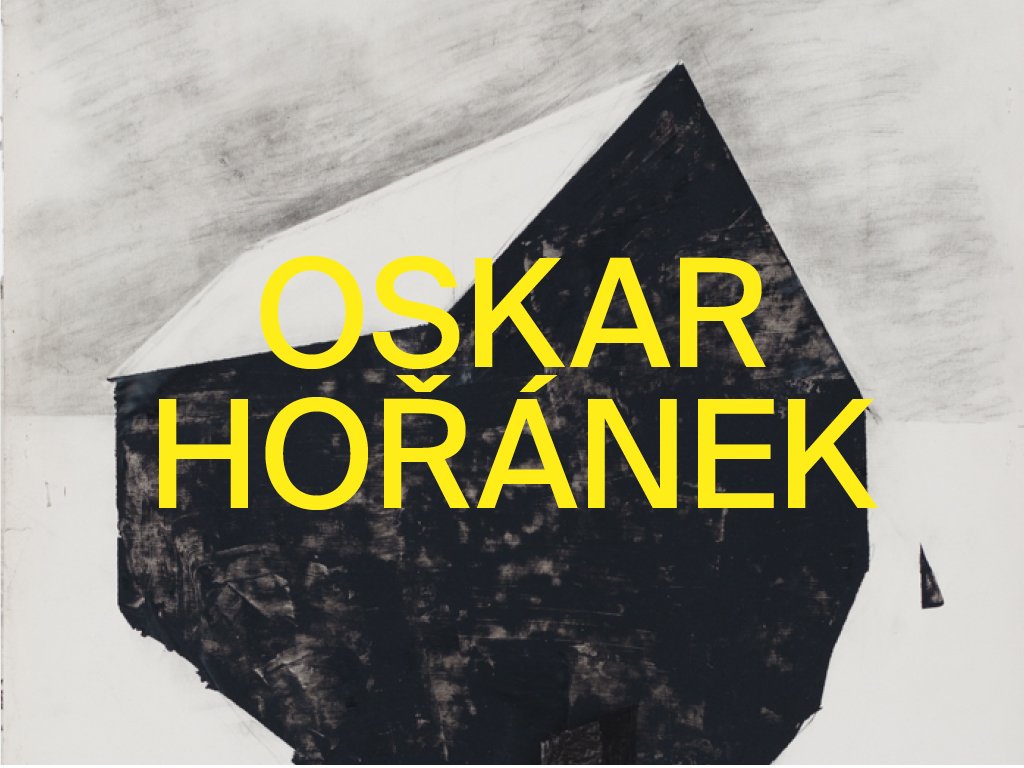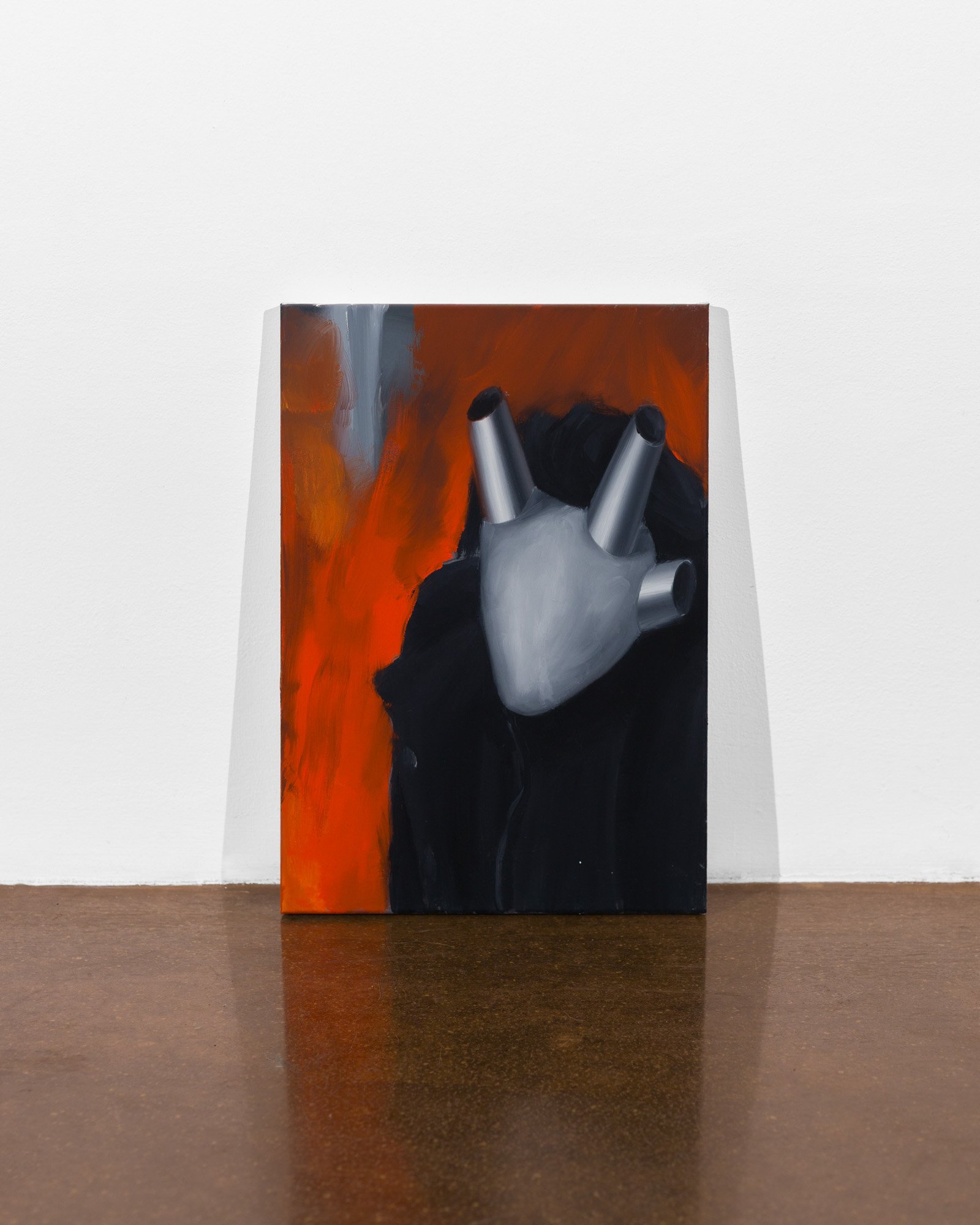TableTalk #1: On Environment, Existential Unease, and Inner Worlds
On June 3rd, we hosted our very first TableTalk. It was a side event accompanying the exhibition Hell’s Angels hiddengallery.cz/hells-angels, organized in the decadent venue Hell Smoke BBQ, which also served as the location of the TableTalk itself. This new discussion format combines a classic artist talk, an art salon, and an informal dinner with artists, curators, collectors, art historians, and cultural enthusiasts — all in a relaxed atmosphere over drinks. The goal is to give artists space to speak differently — more openly, informally, and freely.
Among other honorary guests including Jan Gemrot and David Kolovratník, we welcomed two prominent figures of the emerging Czech painting scene represented in the exhibition: Marcela Putnová and Oskar Hořánek. Both are graduates of AVU who work with the subconscious and the influence of the environment on the individual, though each from a completely different end of the spectrum.
Oskar’s themes touch on psychology and the effect of environment on both the individual and society as a whole. He deals with the existential question of finding one’s place in the world, in confrontation with what makes him authentic in the Heideggerian sense. For him, it is not important to convey a specific story, but to offer the viewer an emotional experience through a situation portrayed in the painting. Through that, he aims to artistically mediate a sense of uncertainty, confusion, and alienation — an experience that holds deep aesthetic potential, even if it is part of our everyday lives. In this way, he builds on both the literary and philosophical concepts of J. P. Sartre and A. Camus.
“A surreal environment should throw you off a bit. Things must be slightly unfamiliar so they can be seen anew.” – Oskar Hořánek
Marcela Putnová’s works also reflect societal influences, though not the behavioral impact of the environment on people as Oskar does, but rather the opposite — the effect of human activity on the surroundings. While Oskar shows how the environment shapes the human being in his thrownness into existence, Marcela portrays how humans transform the world around them — from historical, technological, and anthropological perspectives. Her artistic practice explores the negative consequences of human intervention, including the will to power according to Nietzsche’s Wille zur Macht. Yet there are glimmers of hope, where hardship and suffering become a Hegelian path toward a higher spirit of all things.
Marcela focuses on metaphorical representations of events and phenomena that leave marks in both physical and psychological space. Her works, oscillating like an oscilloscope wave between dream and reality, reveal deeply rooted archetypes, symbols, and signs that carry not only personal but also broader societal meanings. She examines the tension between intimacy and structure, individuality and system. Her art offers a sensitive yet analytical reflection of landscape, body, and society — perceived as a mycelium of rhizomatically interwoven structures that shape, influence, and imprint on one another.
In her paintings, Marcela draws from ancient mythology and Christian iconography, which she reinterprets for the contemporary world. She mentioned birds as a symbol of the soul or pine trees as a sign of resilience. Oskar, originally fascinated by architecture and design, spoke about his shift toward figuration. His latest works depict melancholic figures behaviorally disoriented by the chaotic world we live in. “What you surround yourself with inevitably shapes you. That’s the essential thing I deal with,” he noted.
“Vulnerability is strength. Nakedness is not just a form, but a state.” – Marcela Putnová
During the discussion, we kept returning to the theme of what the world does to us — and what we do to it. There was a question of why apathy and unease are so omnipresent today — not only in society but in our personal lives as well. We also explored how to cope with the fact that the art scene often rewards only certain types of approaches, and how grant systems prioritize budgets over content. Oskar shared a concrete experience with an open call where he received the best written feedback, but lost points due to the size of his budget. The conversation also turned to writing, reviews, and thinking about reality through a language other than the visual one.
The evening also brought a discussion on books. Marcela recommended Zygmunt Bauman and Leonidas Donskis, and their philosophical essay Liquid Evil, which describes the phenomenon of evil as ever-present and immortal, but in the postmodern era also constantly shifting, elusive, and therefore more treacherous than ever before. Oskar mentioned Kafka’s The Trial, dealing with de-individualization and the destructive effects of a violent and absurd world on a weakened individual — something he captures in his paintings. Names such as C. G. Jung, Gilles Deleuze, and even Metallica were mentioned. A few controversial topics surfaced as well, including stories about how many artists paint for other artists.
Why come next time?
TableTalk is not an artist talk. It’s not an opening. It’s not a podcast. It’s all of these — an inspiring gathering in an underground club where artists talk about both intimate and socially resonant themes. At the next TableTalk, you might be sitting next to someone whose artwork is hanging on the wall beside you.






